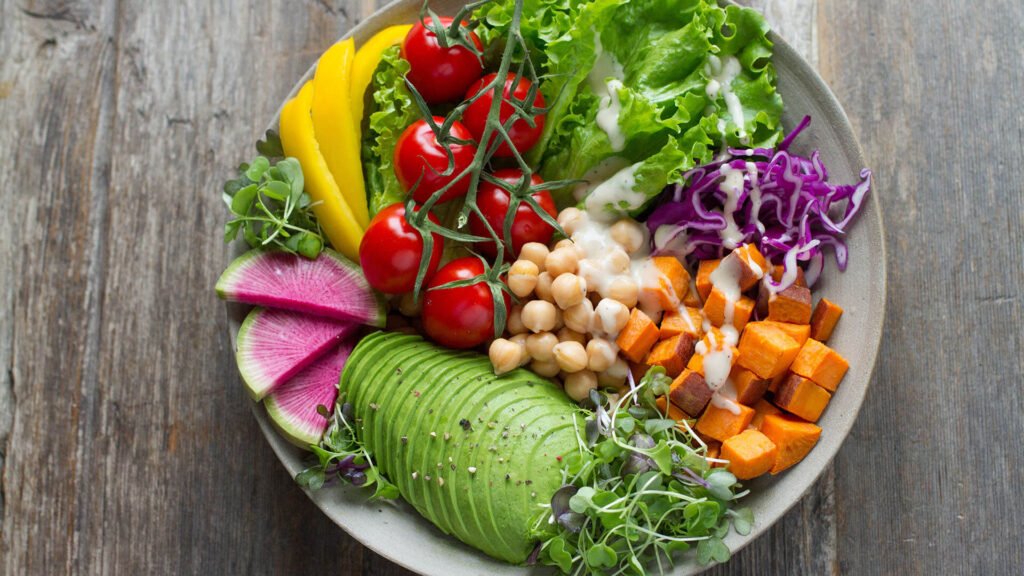Feeling tired, sluggish, or burned out? You’re not alone. In today’s fast-paced world, many people suffer from low energy, poor digestion, and mental fog. But there’s a natural solution grounded in tradition and science: Korean nutrition coaching. This personalized approach to eating, rooted in the K-Style Diet, can help you restore balance, increase energy, and feel more vibrant every day—without relying on caffeine or quick fixes.
Let’s explore how Korean nutrition coaching can boost your energy and vitality from the inside out.
What Is Korean Nutrition Coaching?
Korean nutrition coaching is a holistic, personalized system that combines:
- Traditional Korean food principles
- Modern nutritional science
- Functional superfoods and herbal guidance
- Meal timing and portion control
- Lifestyle and wellness coaching
Rather than prescribing a one-size-fits-all plan, Korean nutrition coaches assess your body type, digestion, activity level, and health goals to create a tailored plan that helps optimize your metabolism and daily energy levels.
1. Energy Starts with Digestion
In Korean medicine, the gut is considered the center of health and energy. Korean nutrition plans are built around foods that improve digestion and strengthen the stomach, like:
- Kimchi and fermented vegetables (probiotics)
- Doenjang (fermented soybean paste)
- Barley tea and seaweed soup
- Juk (Korean rice porridge)
Benefits:
- Reduces bloating and sluggishness
- Improves nutrient absorption
- Supports regular bowel movements
- Strengthens the immune system
✅ Why it works: When your digestion is efficient, your body conserves energy instead of wasting it on processing heavy or inflammatory foods.
2. Balanced Meals Prevent Energy Crashes
Korean meals follow a balanced macronutrient structure with lean protein, complex carbs, and fiber-rich vegetables. This helps stabilize blood sugar levels and avoid the highs and lows caused by processed Western diets.
Typical K-Style Plate:
- Grilled fish or tofu
- Steamed rice mixed with barley or black beans
- 2–5 types of banchan (vegetable side dishes)
- Kimchi or soup
- Fresh fruits or roasted sweet potatoes for dessert
Energy Benefits:
- Sustained energy throughout the day
- Reduced sugar cravings
- No post-meal crashes
✅ Why it works: Balanced blood sugar equals consistent energy, sharper focus, and fewer cravings for caffeine or sugar.
3. Superfoods That Fight Fatigue
Korean nutrition coaches include powerful traditional superfoods that restore and rejuvenate the body:
| Superfood | Energy Benefit |
|---|---|
| Ginseng (Insam) | Boosts stamina, mental clarity, and immune response |
| Perilla Seeds | Rich in omega-3s for brain and cardiovascular health |
| Jujube (Korean dates) | Natural energy source, reduces fatigue and stress |
| Lotus Root | High in vitamin C, helps cellular energy and immunity |
| Mugwort (Ssuk) | Used in teas/soups to warm the body and improve circulation |
✅ Why it works: These natural ingredients nourish vital organs (especially liver, lungs, and spleen), key to sustained energy in traditional Korean health philosophy.
4. Personalized Meal Timing for Natural Energy Peaks
Korean nutrition coaches often guide clients to follow timed eating that supports your body’s natural rhythm:
- Warm breakfast: Congee or steamed rice with egg and vegetables
- Light lunch: Balanced K-style meal with soup and sides
- Early dinner: Easy-to-digest foods like grilled fish and vegetables
Coaching Includes:
- Avoiding late-night snacking
- Timing meals around activity levels
- Integrating herbal teas or broths to fuel between meals
✅ Why it works: Supporting your body’s natural clock prevents energy dips, supports detox, and improves sleep quality—essential for next-day vitality.
5. Hydration & Tea Rituals for Sustained Focus
Unlike sugary drinks or energy beverages, hydrating Korean teas enhance your energy without causing crashes.
Examples:
- Barley Tea (Bori-cha) – Caffeine-free, boosts circulation and digestion
- Ginger Tea – Improves alertness and warms the body
- Ginseng Tea – Traditional tonic for mental clarity and stamina
- Corn Silk Tea – Supports kidney health and reduces water retention
✅ Why it works: These teas naturally detox the body, fight inflammation, and support hydration—key for brain and physical energy.
6. Lifestyle Integration: Rest, Movement, and Mindfulness
Korean nutrition coaching doesn’t stop at food—it’s a lifestyle approach. Many programs also include:
- Gentle exercise advice (walking, stretching, or yoga)
- Sleep optimization strategies
- Mindful eating practices
- Stress management with herbs and tea rituals
✅ Why it works: Holistic health means treating the root causes of fatigue—not just masking it with food or supplements.
7. Client Success Stories (Real Outcomes)
Korean nutrition coaching has helped people around the world:
- 🌟 Overcome chronic fatigue
- 🌟 Regain energy after burnout or stress
- 🌟 Improve focus and productivity
- 🌟 Lose weight without losing energy
- 🌟 Reduce dependency on caffeine or energy drinks
Final Thoughts
If you’re tired of being tired, it might be time to rethink your nutrition strategy. The K-Style approach, guided by professional Korean nutrition coaches, doesn’t just help you lose weight—it helps you feel alive again.
With a focus on gut health, balanced eating, natural superfoods, and lifestyle harmony, Korean nutrition offers a powerful and sustainable way to recharge your body and mind.




